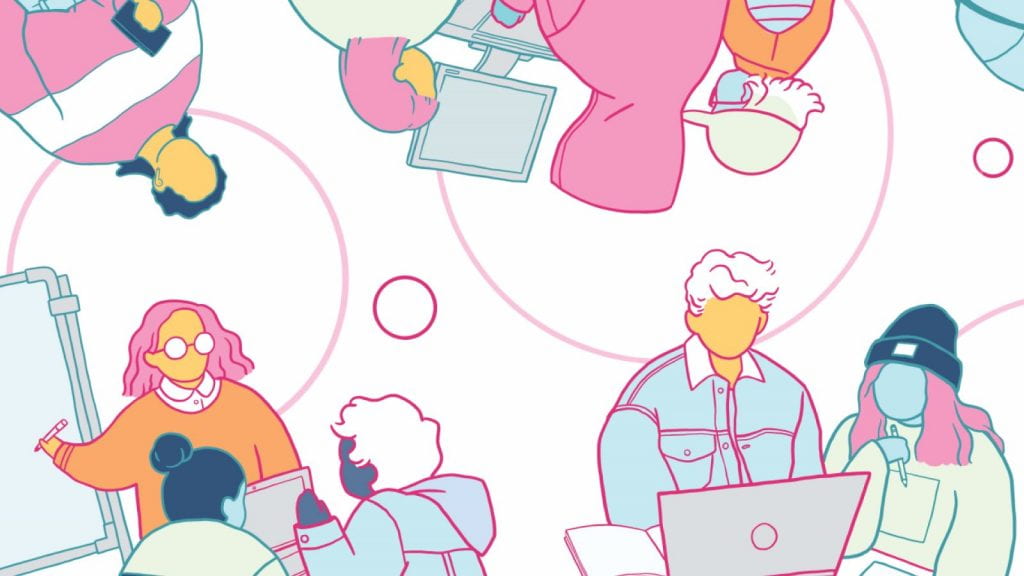Literacy was associated with reading and writing exclusively for decades and even centuries. The 21st century will require far more than these skills to be successful. A sense of confusion develops in society, educational systems, and in people’s minds as people start to add more meaning to the notion. Although people have not developed a specific definition for literacy, most agree that being literate includes the ability to comprehend text, visuals, and audio. Critical thinking skills, social skills, and a range of technology skills are also deemed important by educators, in addition to the ones mentioned above. In the 21st century, we can observe that literate people can effectively process and respond to a variety of textual, visual, audio, social, cultural, and technology-based messages.
According to the article by Leah, the relationship between reading and writing has not changed over the years and is a part of literacy. It is important to be able to read and write texts before being deemed literate but reading and writing are only a part of the list of skills. To develop the most effective behavioral patterns, educators stress the importance of reading visual and audial messages. In the modern world, there is a wide range of visual and aural information bombarding us every day, and understanding those messages effectively is essential in order to succeed.
Furthermore, a 21st century literacy also includes the ability to utilize technology and media. Technological advances such as mobile phones and computers are well suited to the needs of youth and children. Generations in their mid- to late-twenties and older lag far behind, so they are less able to cope with modern day challenges. Young children and adolescents use technology inefficiently, despite their consumption of large amounts. In this respect, teachers should ensure that they empower both their students and their students’ parents so they can overcome issues associated with technology use.
In summary, despite the fact that literacy is not only about reading and writing, a proper definition of the term has not yet been developed. In that regard, many agree that literacy in the 21st century involves understanding, processing, and distributing textual, visual, audial, cultural, and social information. Technology and multiple forms of media should be accessible to modern people as well. Educators should ensure their students have all the skills they need in order to succeed as citizens. To raise the level of multiple literacy in different age groups, it is crucial that we take a distinctive approach.

What might be some different elements of being “fully” literate
In a society in which communication and information are increasingly accessible through digital technologies like the internet, social media, and mobile devices, having digital literacy means getting the skills you need to live, learn, and work in this environment.
Developing your critical thinking skills is essential when you’re confronted with so much information in different formats – you need them to search, sift, evaluate, apply, and produce information.
Digital literacy also emphasizes communication. Communication in a virtual environment requires the same skills and standards as in person, including expressing ideas clearly, asking relevant questions, maintaining respect, and building trust.
Furthermore, you will need practical skills for accessing, managing, manipulating, and creating information ethically and sustainably using technology. The number of new apps and software updates makes this a continual learning process, but your future self will thank you if you keep your digital life organized!
i agree Amanpreet, proper definition of literacy is not yet developed, but i can say, anything that provide us the knowledge and enhance our skills are said to be a literacy.
Excellent overview of literacy and connections to the 21st century. I also am in agreement that an updated definition would be beneficial as many people are unaware that literacy is more than reading/writing and I think that this old definition only contributes to that incorrect thought.
You’re right. I don’t think that there is a universal definition for the word literate, however, I am not sure that there can be one. With all of the different ways that one can be literate, it may be restricted to some of the ways one can be literate. Maybe we need to have an umbrella term that can have sub-categories, etc. under it. Something definitely worth pondering about. Thanks for the comprehensive overview.
Before this class, I really only considered literacy as a component of ELA or math. However, after reading several posts from classmates, watching the presentation, and exploring the readings, I have learned that there are so many aspects to literacy. I appreciate your in-depth overviews of literacy. Although there is not one set definition for “literate”, I do feel like I have gained a better understand of this term.